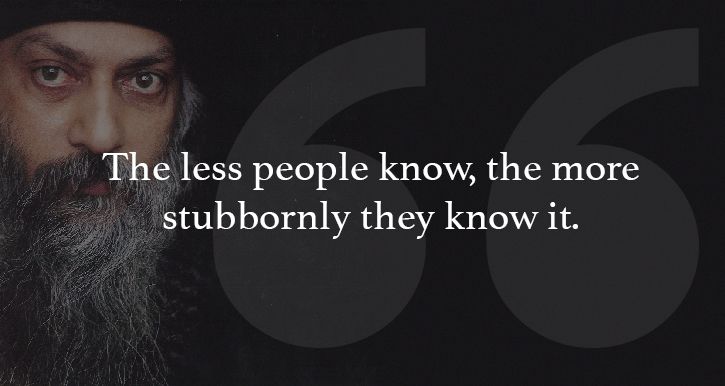

However, he is immensely popular and his lectures have to be moved to the largest hall in the university.Ī powerful and passionate debater, he also travels widely in India during these years, challenging orthodox religious leaders in public debates, speaking on the radio, and addressing large public gatherings. He is also the All-India Debating Champion and Gold Medal winner in his graduating class.Īged 26, he is appointed Professor of Philosophy at the University of Jabalpur, where he teaches until 1966.ĭescribed as a ‘ brilliant but unorthodox professor’, even his teaching methods create controversy. ‘In college he did not spare a teacher who spoke an untruth, and he rebelled against tradition and shocked people by his unconventional mode of thinking,’ reports the New Delhi Patriot in a review of Osho’s life published in 1981.ĭespite antagonising his professors, in 1957 Osho gains a first-class MA in logic, philosophy and literature. When the professor says he has read the book, Osho exposes him to the Vice-Chancellor. When he discovers one professor who will never admit that he does not know something, Osho traps him by quoting in class a fictitious book, Principia Logica. He notices that few of them ever visit the library, and he peppers them with questions about up-to-date material in their field. He also continues to torture his professors. He prefers to teach himself in the library, where he continues his voracious reading. Exasperated, the professor, an old and respected man, gives the ultimatum that ‘either he leaves or I leave’. The Vice-Chancellor finds Osho a place in another college, but his reputation has preceded him and a condition is made that he not attend the philosophy classes at the new college. Admonished by the professor not to argue, Osho points out that this defeats the whole purpose of being in a class on philosophy and logic.

He is asked to leave the first when his logics professor complains to the Vice-Chancellor that he cannot teach because Osho will not stop asking questions.


 0 kommentar(er)
0 kommentar(er)
